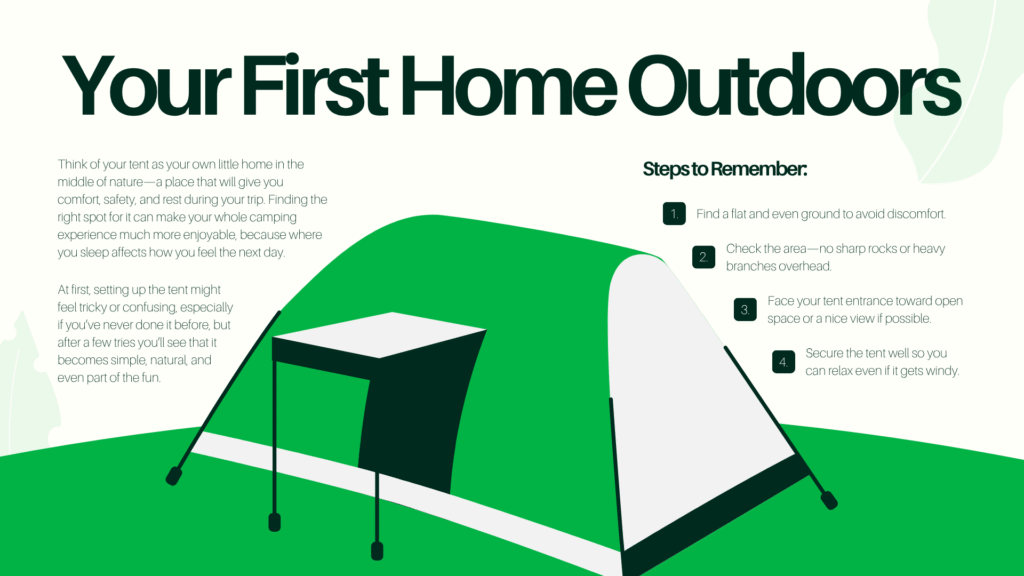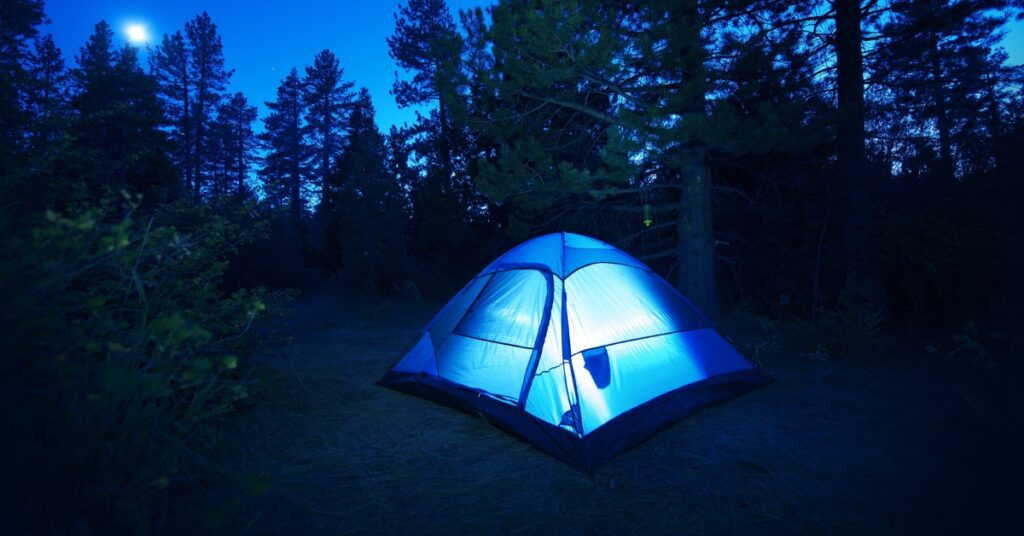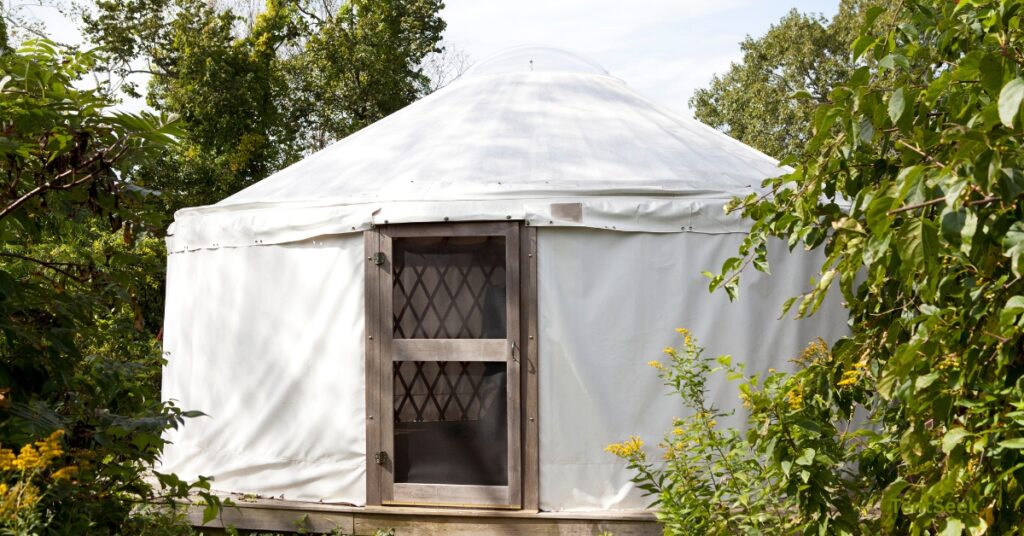Camping can sound intimidating if you’ve never done it before. The idea of sleeping in a tent, cooking outdoors, and being away from the comforts of home might feel overwhelming. But here’s the truth: camping is one of the most rewarding, affordable, and fun activities you can learn. With the right preparation, even someone who has never spent a night outdoors can become a confident camper.
This guide will take you step by step—from absolute beginner to someone who knows how to plan, pack, set up, and enjoy a camping trip with confidence.
1. Why Start Camping?
Before diving into the how-to, it’s worth asking: why camp at all? The benefits are endless:
- Escape from stress – Being outdoors refreshes your mind and body.
- Affordable adventure – Camping costs less than most vacations.
- Bonding time – Great for families, couples, and friends.
- Personal growth – Builds confidence, resilience, and problem-solving skills.
- Connection with nature – You’ll see stars, hear birds, and feel fresh air in a way you can’t in the city.
When you know the why, it’s easier to stay motivated through the learning curve.
2. Start Small and Local
Your first camping trip doesn’t need to be a week in the wilderness. Start simple:
- Pick a local campground with facilities like bathrooms, picnic tables, and running water.
- Go for one or two nights instead of a long stretch.
- Consider car camping (driving to the site and setting up near your car). This makes packing, cooking, and leaving easier.
Starting small helps you practice the basics without pressure.
3. Essential Gear You’ll Need
Beginners often worry they’ll need expensive gear. Don’t! Start with the basics and borrow or rent items when possible. Here’s a checklist of essentials:
Shelter & Sleep
- Tent – Choose one rated for 2–4 people more than your group size (for extra space). Practice setting it up at home first.
- Sleeping bag – Get one suited to the season (summer bags are lighter, three-season bags cover spring–fall).
- Sleeping pad or air mattress – Adds comfort and insulation from the cold ground.
Cooking & Food
- Camping stove or portable grill – Simple two-burner stoves work great.
- Fuel and lighter/matches – Always pack extra.
- Cookware – One pot, one pan, spatula, tongs.
- Plates, cups, utensils – Durable, reusable options.
- Cooler – Keeps food fresh.
- Food – Plan simple meals (hot dogs, pasta, sandwiches).
Clothing & Personal Items
- Layers of clothing – Weather can change fast; pack light jacket, sweater, and rain gear.
- Sturdy shoes – Hiking boots or sneakers.
- Toiletries – Toothbrush, soap, sunscreen, bug spray.
- Headlamp/flashlight – Essential at night.
Safety & Miscellaneous
- First aid kit – Include bandages, pain relievers, antiseptic.
- Map and compass or offline GPS – Phones may lose signal.
- Camp chairs – Optional, but adds comfort.
- Trash bags – Always pack out what you bring in.
Tip: Don’t overpack. Stick to essentials—you’ll learn what you really need after your first trip.
4. Planning Your First Trip
Good planning makes the difference between stress and fun.
- Choose the right campground – Check if it’s family-friendly, has bathrooms, and allows campfires.
- Check the weather forecast – Avoid your first trip during heavy rain or extreme cold.
- Reserve in advance – Popular campgrounds book fast, especially in summer.
- Tell someone your plans – Safety first: let a friend know where you’ll be.
Pro tip: Many national and state parks have websites with maps, trail info, and camping rules.
5. Setting Up Camp
Arrive while it’s still daylight—setting up in the dark is stressful. Here’s the sequence:
- Choose a flat, dry spot for your tent (avoid low ground that could flood in rain).
- Lay a ground tarp before pitching the tent for protection.
- Assemble the tent – Practice at home makes this easy.
- Organize your site – Keep cooking, sleeping, and fire areas separate.
- Set up chairs and lights so your camp feels comfortable.
Once the basics are done, relax and enjoy the view!
6. Food: Keep It Simple
Cooking outdoors doesn’t need to be complicated. For beginners:
- Breakfast: oatmeal, cereal, eggs, or pancakes.
- Lunch: sandwiches, wraps, fruit.
- Dinner: hot dogs, burgers, pasta, or grilled veggies.
- Snacks: trail mix, granola bars, chips.
Prep at home when possible (cut veggies, marinate meat, pre-measure spices). Store perishables in a cooler with ice.
And of course—don’t forget s’mores. They’re a camping tradition!
7. Campfire Confidence
A campfire creates warmth, light, and atmosphere. To build one safely:
- Use the campground’s designated fire ring.
- Gather tinder (dry leaves, paper), kindling (small sticks), and firewood.
- Start small with tinder, add kindling, then larger wood.
- Never leave the fire unattended.
- Extinguish fully with water before bed.
If fires aren’t allowed, bring a portable propane fire pit or lanterns for ambiance.
8. Safety and Comfort
Beginners often worry about safety. Here are golden rules:
- Stay hydrated – Always carry water.
- Wildlife awareness – Store food in sealed containers, never inside your tent.
- Bug protection – Use repellent and wear long sleeves at dusk.
- Know your limits – Don’t attempt long hikes or tough terrain right away.
- First aid basics – Learn how to clean cuts, treat blisters, and handle burns.
For comfort, pack small luxuries: a pillow, favorite snacks, or a book. These little things make camping feel like home.
9. Building Confidence
The first trip may feel clumsy—zippers jam, the tent takes longer than expected, or you forget an item. That’s normal. Every trip teaches you something new. The key is to:
- Keep notes of what worked and what didn’t.
- Upgrade gear slowly based on your experience.
- Celebrate small wins (like cooking your first meal outdoors).
Confidence comes from practice, not perfection.
10. Expanding Your Camping Skills
Once you feel comfortable with the basics, you can explore new styles:
- Backpacking – Carry everything in a backpack and hike to your site.
- RV camping – Enjoy the outdoors with more comfort and mobility.
- Winter camping – For advanced campers who want adventure in snow.
- Wilderness camping – Farther from facilities, for those seeking solitude.
Camping grows with you—the more you practice, the more confident and adventurous you become.
11. Leave No Trace
A confident camper also respects nature. Follow the Leave No Trace principles:
- Pack out all trash.
- Leave plants, rocks, and wildlife untouched.
- Stick to trails and campsites.
- Minimize campfire impact.
- Be considerate of other campers.
Protecting the outdoors ensures it’s there for future campers.
Conclusion
Camping for beginners may feel overwhelming at first, but with preparation, the right gear, and a willingness to learn, anyone can go from zero to confident camper. Start small, keep things simple, and focus on enjoying the experience.
The first time you wake up to birdsong, sip coffee by a campfire, or see a sky full of stars, you’ll understand why millions of people around the world love camping. It’s not about being perfect—it’s about stepping into nature, making memories, and discovering confidence you didn’t know you had.
So grab a tent, pack some snacks, and head to a local campground. Your journey from beginner to confident camper starts with one trip—and chances are, it won’t be your last.
This post contains affiliate links.




